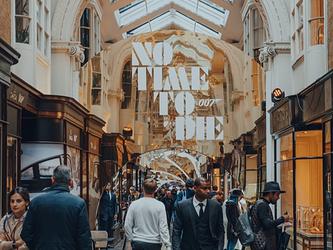Navigating a crisis with cultural relevance
It’s fair to say we didn’t think 2020 would turn out this way. Our routines, friendships, jobs and communities are all in flux. Predictions have become meaningless. Macro and micro trends are all to be questioned. Everything, including the very culture that underpins us, is in free fall.
When watching adverts made before the Covid-19 crisis, the disconnect is striking: people in bars, travelling, hugging grandma. What may have seemed relevant just a few weeks ago now feels remarkably out of whack with our ‘new reality’. Brands are all too aware they need to change tack. For us, this means not only rethinking our methods but also the frameworks used to help brands form culturally relevant strategies in these extraordinary times.
When I talk about ‘culture’, I mean the need for brands to look outside of their own category – to think about their place in the wider world and the role they play in people’s lives. Arguably, staying relevant becomes even more pressing in the face of a global crisis.
Some success stories are already cutting through (Deliveroo encouraging users to donate meals to NHS staff, Zoom giving out its platform for free), while others who’ve come across as too opportunistic have quickly fallen flat. The highs and lows of advertising during Covid-19 are a symptom of the speed at which our cultural context is moving and, four weeks in, we’ve already seen a lot change. So, how can clients navigate the crisis?
Slow culture has become fast culture.
In normal, ‘stable’ circumstances, we distinguish between fast culture (popular music, make-up trends, food tastes, fashion) and slow culture (values and behaviours surrounding family, community, work, spirituality). Fast culture is things you can see, slow culture is the attitudes that lie beneath. According to Grant McCracken, author of Chief Culture Officer, successful brands are those that appeal to a convergence of both slow and fast culture.
However, at the moment, what used to be slow is moving fast. Very fast. Our sense of community and what signifies caring for others has changed in weeks, not years. Our relationship to our home, work and family has shifted beyond recognition. The way forward is to accept that all culture has turned into fast culture (for now) and make shorter term plans.
Lean into exposure and deprivation.
In cultural research, we often use exposure or deprivation tasks to get to the underlying meaning. For example, for Spotify, we took music out of people’s lives to explore the true power of audio. Covid-19 is imposing restrictions on our lives to the extent that, right now, there is a societal-level exposure and deprivation experiment unfolding before our eyes. We can use this as a chance to explore the deeper values hidden in our relationships with the things we’re deprived of (social connections) and exposed to (our homes and technology).
Iterate, iterate, iterate.
This is not the time to hide away, do research, then report back the answer. There isn’t a right answer. There are many scenarios and they’re shifting all the time. We recommend ongoing research programmes, not one-off projects, where clients can keep their ears to the ground, learning and changing as they go. We’re currently running a week on week, pop-up workshop programme for a social media client, which sees us translate video clips on the fly and report back top-lines on a daily basis. This may fall outside the comfort zone of many researchers, but we think this speed and iteration will carry on post-crisis.
Blended skills.
It’s not enough to just talk to consumers during times of crisis. To fully understand the changing cultural context, we need to deploy multiple methods. By blending social media analysis, semiotics and trends with participant input via remote ethnography and surveys, we can both understand new human needs and values, as well as larger cultural shifts.
Sharing insights within organisations is also more important than ever. Using storytelling and creative delivery helps to communicate with people who are far apart, like getting everyone within a marketing team quickly on board with a new brand direction. However, working with multidisciplinary teams requires humbleness and empathy for each other’s skills. We need to work together to understand what the future might hold.
It’s clear that the knock-on effects of Covid-19 will be felt throughout the business world as cultures adapt to the ‘new normal’. And even if, as an industry, research and insight itself is being affected, it’s important to remember that, in essence, research is always about informing, inspiring and equipping ourselves for the cultural changes ahead. Living through this crisis must ultimately represent an opportunity to learn new skills, to grow as an industry and become even more indispensable in times of change. Everything is changing and we need to roll with the punches.
Matilda Andersson is managing director, London at Crowd DNA

We hope you enjoyed this article.
Research Live is published by MRS.
The Market Research Society (MRS) exists to promote and protect the research sector, showcasing how research delivers impact for businesses and government.
Members of MRS enjoy many benefits including tailoured policy guidance, discounts on training and conferences, and access to member-only content.
For example, there's an archive of winning case studies from over a decade of MRS Awards.
Find out more about the benefits of joining MRS here.














0 Comments